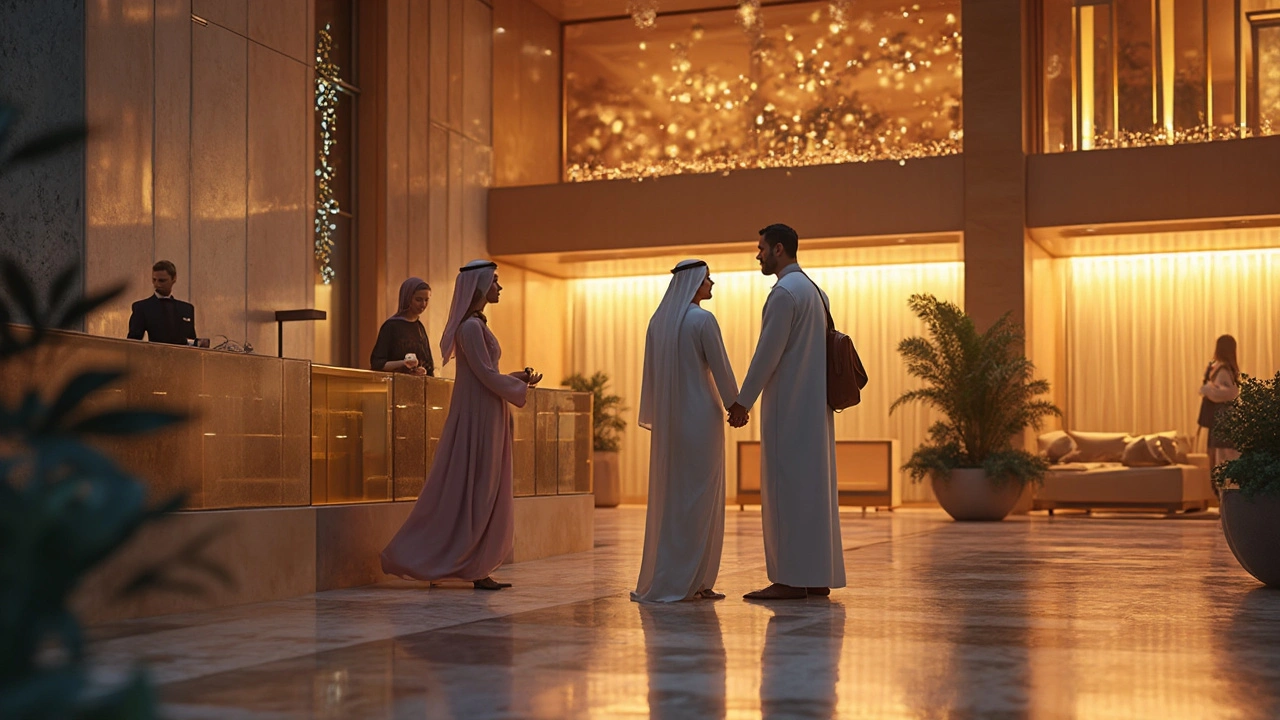Dubai Relationship Laws: What Couples Need to Know
Thinking about dating, staying, or even tying the knot in Dubai? The city’s legal landscape can feel like a maze, but you don’t have to get lost. Below you’ll find the most practical facts about public affection, hotel visits, marriage paperwork, and the everyday rules that keep you on the right side of the law.
Public Affection & Private Spaces
In Dubai, public displays of affection (PDA) are limited. A quick hug or a brief kiss in a private lounge is fine, but anything beyond that can attract a fine or a police visit. The rule of thumb? Treat public areas like a business meeting – keep it low‑key. Restaurants, malls, and beaches are especially strict during Ramadan, when even a friendly handshake can be misread.
Hotels, however, are a different story. Most upscale hotels allow couples to stay together in a room, even if you’re not married. The key is to book a “double occupancy” room and present valid ID for both guests. Some boutique hotels request a marriage certificate for couples of the same gender, but for opposite‑sex couples a simple ID check usually does the trick.
If you’re visiting a friend’s apartment or a shared Airbnb, make sure the owner is aware of your plans. Unmarried couples staying overnight can sometimes be asked to show proof of relationship, especially in residential complexes with stricter community rules.
Marriage, Cohabitation, and Legal Risks
Getting married in the UAE requires a bit of paperwork, but it’s straightforward if you follow the steps. Both partners need a passport, birth certificate, and a no‑marriage‑record certificate from your home country. After the civil ceremony, you’ll receive a marriage contract that is recognized nationwide. This contract unlocks benefits like joint bank accounts, shared health insurance, and the ability to sponsor a spouse for a residency visa.
For expatriates who prefer a long‑term partnership without a formal marriage, cohabitation is tolerated as long as you keep it private. The law does not criminalize living together, but any public evidence of a romantic relationship can still be flagged. This is why many couples choose to keep their relationship low‑profile on social media while they’re in the city.
Divorce in Dubai follows the Civil Code: the party filing for divorce must provide grounds such as incompatibility, abandonment, or infidelity. If you’re a foreign national, the court may refer to your home country’s laws for matters like alimony and child custody. Hiring a local lawyer who knows both Sharia and civil law can save you time and money.
Finally, remember that cultural sensitivity goes a long way. Respecting local customs – dressing modestly, avoiding loud arguments in public, and staying informed about changing regulations – helps you enjoy Dubai without legal headaches.
Bottom line: public affection is limited, hotel stays are generally fine for couples, marriage paperwork is doable, and private cohabitation is tolerated as long as you keep it low‑key. Keep these pointers in mind, and you’ll navigate Dubai’s relationship laws with confidence.
-
 VIEW POST
VIEW POSTCan You Hug Your Boyfriend in Dubai? Everything Tourists Need to Know
Jun, 23 2025|0 CommentsWondering if you can hug your boyfriend in Dubai? Get the real facts about Dubai's public affection rules, potential risks, and what everyday life is like for couples. Find insider advice, surprising facts, and practical tips to navigate romance in this unique city. -
 VIEW POST
VIEW POSTCan You Sleep in the Same Bed as Your Boyfriend in Dubai? Rules, Risks, and Realities
Apr, 26 2025|0 CommentsDubai is famous for its strict social guidelines, especially for couples. If you're thinking about sharing a bed with your boyfriend in Dubai, you can't ignore the local laws and unspoken rules. Some hotels might look the other way, but that doesn't make it risk-free. This article breaks down what's legal, what's actually enforced, and the smart moves you can make to avoid drama. You’ll hear tips, personal stories, and the real-life facts you absolutely have to know before booking that hotel room.